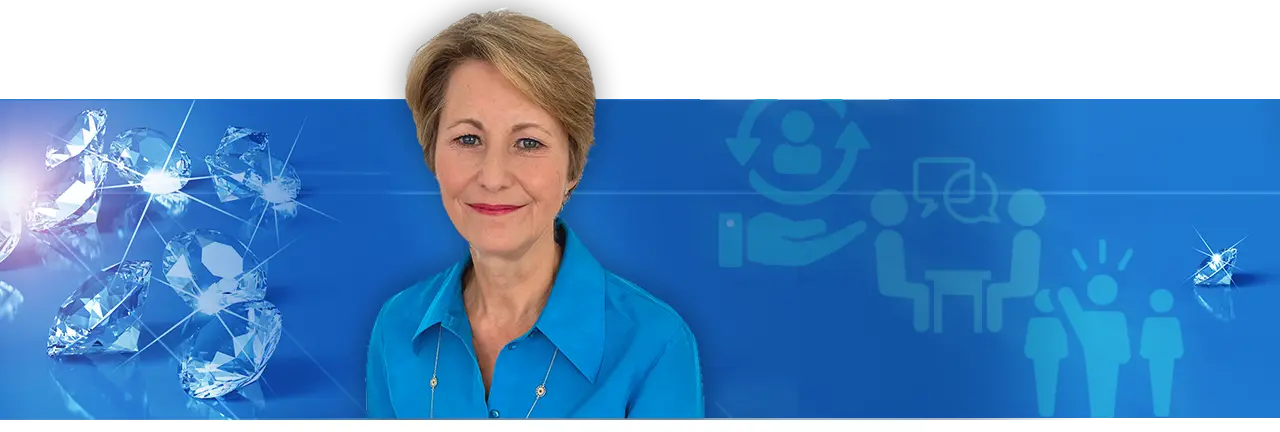Coaching under the spotlight gemm Insights October 2024
In our October gemm insights we discuss the First 90 days in a new role, and how coaching can help neurodiverse people to thrive in their work and their colleagues and organisations to benefit from a neurodiverse workplace.
We are also highlighting the 10 top benefits of coaching, and welcome more new team members to gemm!
I hope you enjoy it.
In this issue
The first 90 days – coaching for a new role Coaching for a neurodiverse workplace The benefits of coaching that might surprise and inspire you The latest news from gemm coaching

The first 90 days – coaching for a new role
The appointment of a new executive is a significant investment that needs care and attention to ensure the best opportunity of success.
The failure rate of new executives is surprisingly high. According to research from the Corporate Executive Board (CEB) 50 – 70% of executives are estimated to fail within 18 months of taking on a new role – regardless of whether they were an external hire or promoted from within.
A report by McKinsey senior partners Scott Keller and Mary Meany also reveals that three quarters of executives consider themselves unprepared for a position because of inadequate onboarding processes.
So how do you ensure a smooth transition for those new to role in your organisation, and what are the best strategies for success?
In Michael Watkins’ classic book, “The First 90 Days”, he examines the root causes of failure and identifies the key drivers for success in a framework that accelerates transitions and yields much better returns for the organisation.
Within this framework there are 10 key practices for those new to role, from identifying personal learning goals and establishing position, to understanding the business and the expectations of the role, through to how to build the team, command respect, and align with cultural values.
An article in the Harvard Business Review, “4 Traps to Avoid as you Transition into a Leadership Role” highlights how best to leave your previous role and prepare for a successful transition. It notes that it’s easy to make assumptions about a new organisation and the situation you are entering, and cautions against simply applying the experience and knowledge that you bring with you before asking the right questions to fully appreciate the task ahead.
With so many pitfalls to avoid and multiple aspects to making a successful transition, it’s easy to understand why failure rates are lamentably high. Support and guidance through the initial onboarding period is therefore key for everyone involved – the new executive, their manager, their team, and the entire organisation.
At gemm, we offer First 90 Days coaching, using a structured approach that appreciates the challenges of a new role for both the individual and the organisation.
In our experience, this investment helps the executive to move into their new role purposefully and with confidence, to interact positively with their new team and colleagues, and to deliver immediate results. As a result, they feel valued by the organisation, and ready to take on the role of leader and to garner the support of their colleagues and team members. In turn, the organisation benefits from a more engaged, high performing, focused, and innovative executive hire.
For more information about the gemm First 90 Days coaching programme, please visit our dedicated web page.
References
Business Insider : 4 Common Reasons Half of All New Executives Fail (small subscription required).
Harvard Business Review: 4 Traps to Avoid as you Transition into a Leadership Role,

Coaching for a neurodiverse workplace
According to the ADHD Foundation, different thinking is now recognised in 20% of the workforce who have, until now, remained largely invisible.
1 in 5 people display different ways of thinking, finding expression in Dyslexia, Dyscalculia, Autism, ADHD, and Dyspraxia.
Research also shows that 40% of millionaires are dyslexic, and that the characteristics of ADHD are positively connected to both entrepreneurship and the initiation of business ventures.
How does coaching support and enable neurodiverse employees?
A neurodivergent person may excel at some things and struggle with others, so the first step is to clarify their needs and goals, and on enabling understanding and acceptance. Every neurodivergent person is unique and when they understand their strengths and differences, and know that it’s okay and that it can be an advantage, they can give themselves permission to express their difference. The focus is on asking questions, identifying strengths and looking at coping strategies where helpful.
1:1 coaching can help them to:
- Identify strengths and areas that may benefit from support.
- Navigate situations that may cause them stress.
- Keep them in the present.
- Manage oscillating energy and activity levels.
- Cope with change and transitions.
- Identify triggers and how to manage them.
- Develop a soothing system to bring the system back into balance.
- Build self-compassion as a skill to self-regulate.
- Develop communication skills to improve work and personal relationships.
- Develop optimism and positive thoughts, and so create constructive outcomes.
- Develop wellbeing techniques in areas such as sleep hygiene, diet, rest, and exercise.
Coaching for neurodiversity uses a solution focused approach which helps develop a growth mindset and so helps the coachee to move away from being stuck.
How can 1:1 coaching and team coaching workshops help managers and colleagues recognise, understand and capitalise on the strengths and differences of neurodiversity?
A recent article in People Management identified that a staggering 78% of neurodivergent workers feel overwhelmed at work, with a distinct divide on feelings of well being, career satisfaction and psychological safety compared to their neurotypical peers. The article calls for more action from management to address these challenges, and here at gemm we echo those calls, not only to redress the balance and reinstate equity in well being, but because the organisation as a whole stands to gain in so many ways as well as every individual within it.
Neuro-diverse coaching and workshops for managers and their teams helps them to:
- Appreciate the strengths of diversity in the workplace, as well as acknowledging the challenges.
- Understand how neurodivergent people contribute in different, yet equally valuable ways.
- Create a working environment in which their neurodiverse colleagues can thrive. For example, understanding the benefits to them of working when they feel most energised, and accepting that this may not be during the normal 9 to 5.
- Empowering neurodivergent people to ask questions and so help to protect them from burnout.
- Understand that the neurodiverse individual may have difficulty with the perception of time, which can impact working to deadlines. This can be combined by a strong desire to please others and a fear of letting people down.
- Be more accepting of their colleagues and so create an environment where they can be more creative, more productive, and less distracted.
- Be open to learning from neurodiverse people and so create an inclusive learning environment.
Managers and colleagues also learn the importance of:
- Not making assumptions about neurodiversity and identifying and agreeing ways of working and solutions that best suit each individual.
- Creating a calm and comfortable environment – one where the person feels at ease and where any sensitivities that they have are not triggered.
- Knowing what matters to their neurodiverse colleagues – their routines and daily patterns.
- Communicating instructions, requests, and expectations clearly.
- Ensuring that people are working to their strengths and doing work they find interesting, and therefore more likely to succeed at.
- Encouraging them to share their coping strategies so that everyone understands how they work and what helps them work at their best.
- Enabling good two-way, open communication.
By doing so, they enable their colleague to spend less energy masking their behaviours to fit in, to be at ease just being themselves, and so be more productive.
“There’s no such thing as an unproductive neurodivergent adult. There are just unsupported neurodivergent adults.”
Professor James Brown
The benefits to the organisation of coaching for neurodiversity
Neurodiversity provides a wide range of different strengths that provide valuable opportunities for an organisation to improve its performance and output.
The rich makeup of today’s workforce allows us all to benefit from a more inclusive, respectful, flexible and dynamic way of working – where individual strengths are recognised and understood, and work patterns are customised to optimise everyone’s performance.
When we recognise and celebrate difference and work to our strengths, we help develop a culture of trust and flexibility in which everyone finds their place and where we can all thrive and perform at our best.
Coaching in neurodiversity allows organisations to delve deeper into the strengths and benefits of difference, to remove stigmatisation through fear or lack of knowledge, and gain better understanding and appreciation of one another.
gemm has two coaches who specialise in neurodiverse coaching. Talk to us to find out more.
References
People Management October 2024: Majority of neurodivergent workers feel overwhelmed at work, research finds

The benefits of coaching that might surprise & inspire you
Have you ever wondered what it might be like to take part in a personalised professional coaching programme and what the benefits might be for you and your organisation?
If you are new to a role or are preparing for a promotion, if there are changes or challenges that are unsettling you and your team, or you are looking to consider your future career or fulfil your potential in your current role, coaching unlocks new skills and pathways to deliver a tangible bottom line impact.
Research from the Harvard Business Review concludes that coaching boosts productivity by 44%, – a significant return on investment.
At gemm, we offer an initial no obligation consultation where we chat through your development needs and identify the best route forward. If this is of interest to you, please get in touch to find out more.

Introducing our new team members
We’re delighted to welcome additional members to the gemm coaching panel, who bring a range of talents and experience with them. They allow gemm to offer even more options when matching coaches with coachees, so that we can quickly find the right coach for them.

Jen Wood
Jen is an accredited therapist, coach, mentor, and supervisor with over 25 years of experience, who brings a multifaceted approach to executive coaching. Her practice integrates solution-focused, cognitive-behavioural, mindfulness and compassion-focused techniques, underpinned by a trauma-informed and neurodiversity-affirmative perspective.
Jen helps creative and ambitious professionals, particularly those who may be neurodivergent, achieve balance between career success and personal fulfilment.
You can read more about Jen here.

Rachel Martin
Rachel is a skilled and experienced coach and facilitator who creates inclusive thinking environments to empower individuals and teams to realise their strengths and enhance their skills and productivity.
Rachel creates a safe, non-judgmental environment where people feel at ease and are inspired to bring about positive change. She builds connections and rapport through attentive listening and skillful questioning, bringing warmth and a sense of humour to her work with others.
Find out more about Rachel’s background here.
Maria Gray
 Maria has been an executive coach since 2005 and supervised coaches since 2015. Prior to coaching, she worked in a range of senior leadership roles in finance and human resources within large multinationals.
Maria has been an executive coach since 2005 and supervised coaches since 2015. Prior to coaching, she worked in a range of senior leadership roles in finance and human resources within large multinationals.
She has supported many leaders in developing self-trust, in navigating the challenge of leading and building confidence in others while managing their inner doubt. In her sessions she creates a safe space for clients where they can explore their inner world, address their most pressing challenges and become the most authentic and resilient version of themselves.
You can read more about Maria’s backgound here.
A warm welcome to you all from the entire gemm team!
